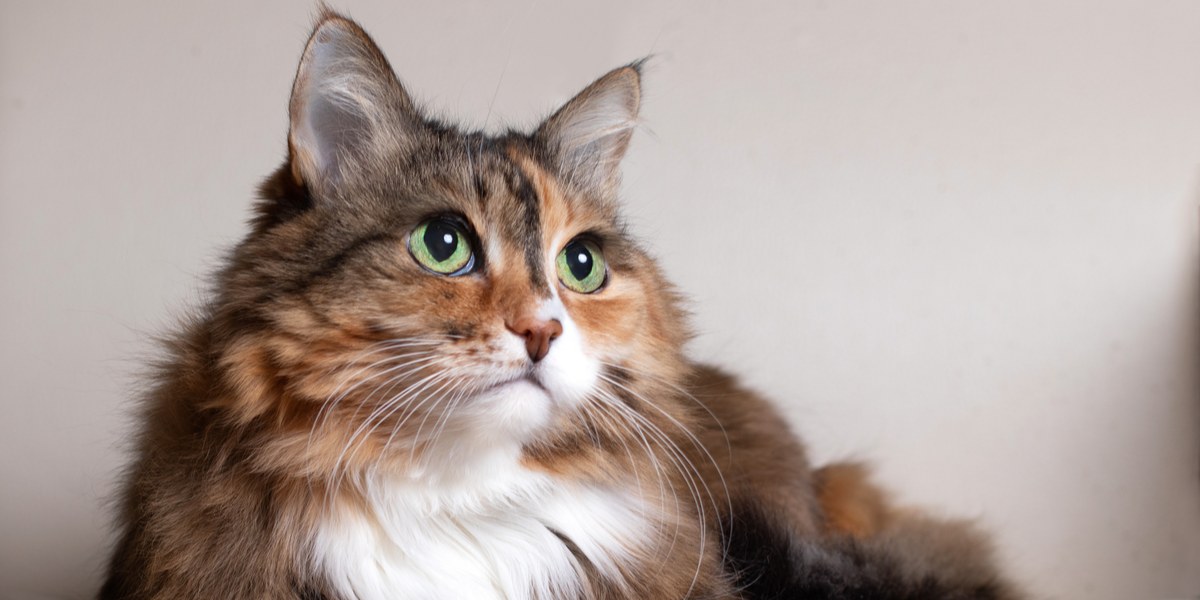
As cat owners, we often wonder how our feline friends’ ages compare to our own. While most cats live between twelve and twenty-two years, it’s fascinating to think about how their age aligns with human years.
It feels intuitively wrong that a family member (even if they are a cat) should be in their senior years when we humans are just heading towards young adulthood, in our mid-teens. So for this reason, it makes sense to us to create a comparative system that allows us to visualize a cat’s “human age” i.e. how old they are in “human years”.
Of course, the cat age calculator system can also be turned around, to work out how old humans are in “cat years”, but that’s a different day’s work. Or indeed, it would be interesting to compare cat age in cat years with dog age in dog years.
Comparisons could even be made between cat breeds, based on data showing how long pedigree cats live compared to domestic short-haired cats (mixed breeds).
And as for the question of “how long do cats live for?” The area of life expectancy is an interesting one to consider, but it’s more of a guessing art than a specific science.
The traditional method of comparing ages, widely known, was to keep it simple: just multiply cat’s years of life in calendar years by seven.
While this works well for cats in middle age (a five-year-old cat is probably equivalent to a thirty-five-year-old human), it doesn’t work well at either end of the cat’s life. A year of a cat cannot be compared so easily with a year of a human.
Cats mature rapidly in the first year of life: a one-year-old cat is more like a teenage human than a seven-year-old child.
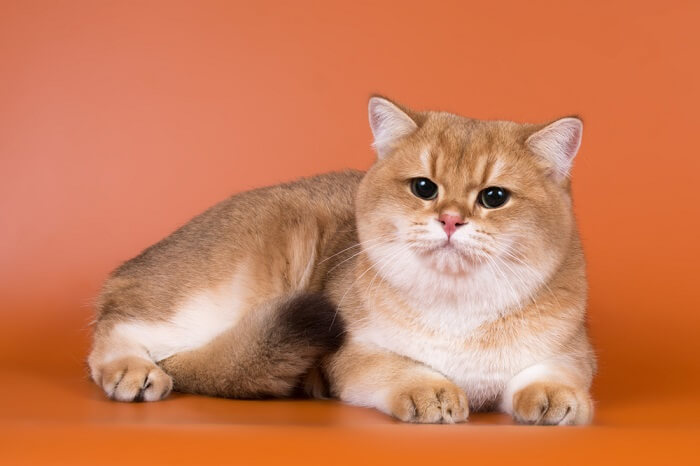
While the “multiply by seven” rule tends to work for middle-aged cats, aging rates fall out of sync for very young or senior cats.
By the end of second year of life, a cat is like a person in their mid-twenties. A twelve-year-old cat is usually far fitter than an eighty-four-year-old human. There are far more senior cats over the age of fourteen than there are elderly humans over the age of a hundred.
Also Read: When Do Cats Stop Growing? 6 Cat Life Stages Explained
And finally, I’ve known a fair number of geriatric cats over the age of twenty, which is 140 human years, using this old formula. The oldest age a human has ever reached is just 122 (equivalent to a seventeen-year-old cat), while if a cat reaches their mid-twenties, it is not unheard of: 7 years x 25 is 175 in human years, which is absurd. And the oldest cat ever was 38 years old, meaning a ridiculous 266 human years.
So it makes sense to adjust the old formula, and there are several ways to do this.
Cat Age Chart: How Old is My Cat?

A cat age chart like this one can give you a rough idea of your cat’s age in human years, but it’s not a precise science.
The easiest way is simply to create a chart that allows a good estimate to be made: see below for our best effort to do this.
This will never be a precise science, however, and a general guide like the one below, which puts cat life stages into human terms, is the best answer.
How Do You Calculate a Cat’s Age?
A cat age chart works well if you have owned a cat since kittenhood, and you already know their age in calendar years. But what about if you have a rescue cat, or if you have adopted an adult cat? Is there any way that you can find out how old they are?
Again, this is not a precise science, but there are signs that you can look for to make a good guess.
1. Teeth:
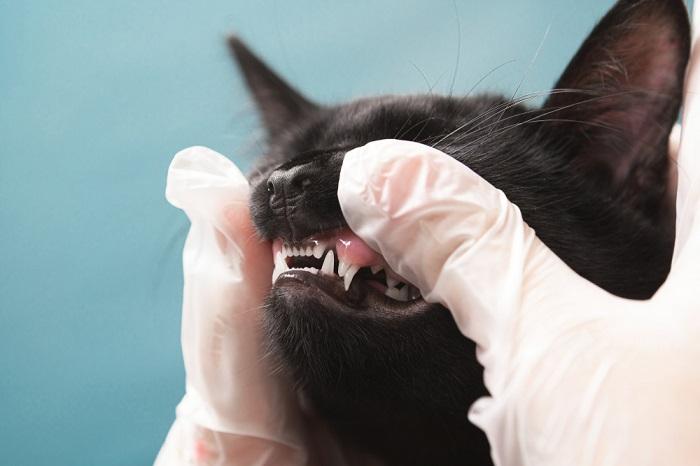
A cat’s teeth are among the best indicators of their age. A cat with flawless white teeth is likely under a year old, while a cat with advanced gum recession, tartar buildup, and other signs of dental disease is probably six or older.
A cat’s teeth can give useful information. The combination of tartar build up, gum recession and loose or absent teeth can give some suggestions about a cat’s age.
- If a cat has perfect white teeth, with no sign of gum disease, they are probably less than a year of age.
- If there is some early tartar build up, with minimal gum recession, the cat may be one to three years of age.
- If tartar build up is more significant, the cat may be three to six years of age.
- And if there is marked tartar build up, with advanced gum recession, loose teeth and perhaps missing teeth, then the cat is likely to be older than six, with the changes becoming more apparent as the cat grows older.
These guidelines are only approximate: some cats develop dental disease at an earlier age then others, and some elderly cats can have surprisingly healthy teeth.
Also Read: The Complete Guide To Dental Cleaning For Cats
There are many factors involved, including diet, genetic influences, and a carer’s attention to dental care at home.
- Fur: As a general rule, kittens and young cats have softer fluffier fur, while older cats have coarser, thicker coats. Some cats develop grey or white flecks with age, like some humans.
- Body condition: Younger adult cats tend to be stronger, fitter and more muscled, while as cats grow older, they often lose body condition, so that you can feel the bones of their spine and hips more easily when you run your hand along their back.
- Eyes: Younger cats tend to have clearer, brighter eyes, while older cats are more likely to have mild ocular issues, including patches of pigment, slightly cloudiness, or discharge from the corners of the cat’s eyes.
2. Facial Expression:
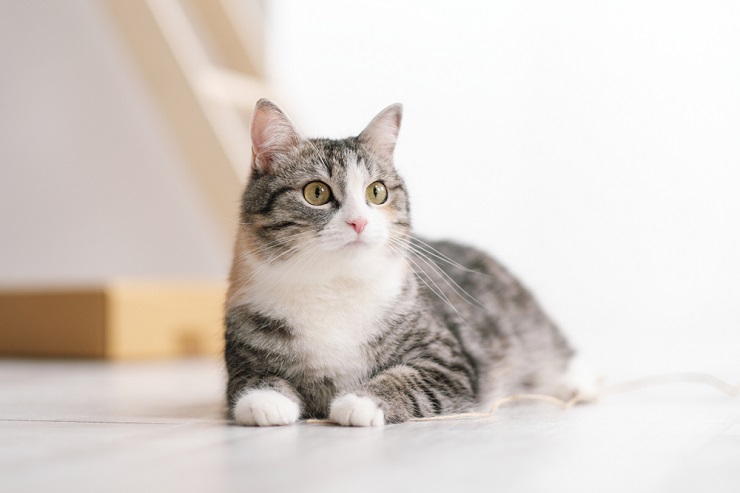
It’s a subjective measurement and not a foolproof indicator of age, but a cat’s facial expression can tell you things about its age. Older cats typically have a more somber, “mature” look than their younger cousins.
This is subjective, but it certainly often seems that younger cats have more innocent, wide-eyed faces, while older cats tend to look wiser, more wary, more experienced, and put simply, “older”.
3. Some Cats Age Quicker Than Others:
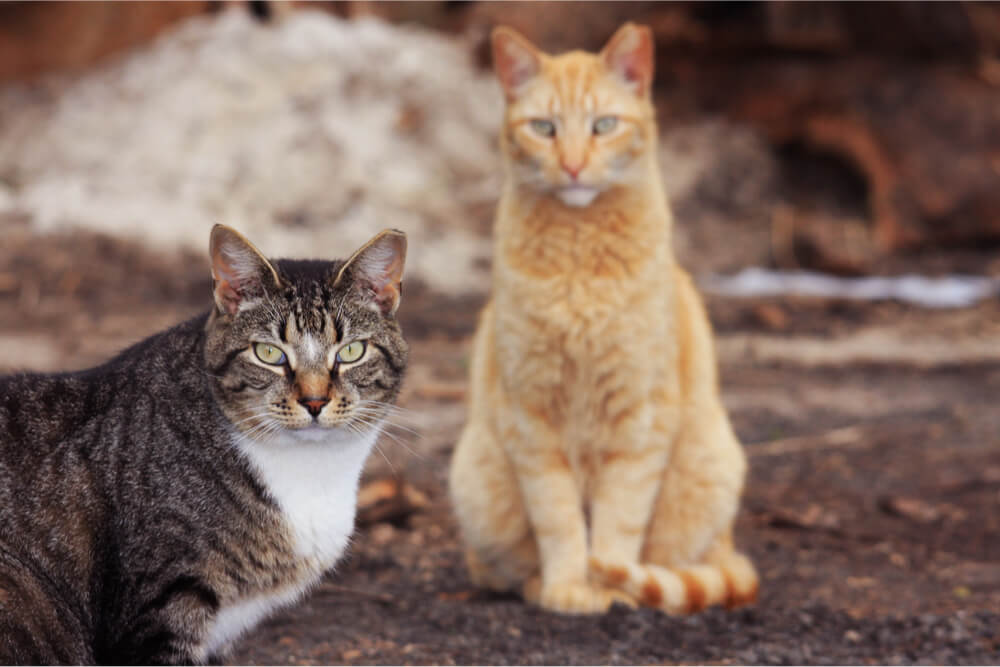
A cat’s life experience can influence how rapidly they show signs of aging. Cats, like ferals, who have lived harsher lives will often show signs of aging sooner than those who live indoors.
As an example, outdoor cats can have tougher lives than indoor cats (studies show that the lifespan of indoor cats, on average is longer than outdoors cats), and outdoor cats may appear to be older than indoor cats of the same age.
Whatever age a cat is, it’s important to remember that just as in humans, to some extent at least, age is just a number: if a cat has high-quality cat food, a comfortable home with a carefully monitored litter box, low levels of stress, effective parasite control, regular checkups with their DVM veterinarian, and overall attentive, caring owners who pay attention to health issues, they can belie the number of years that they have lived, remaining strong, fit and contented for far longer than you might expect.
Frequently Asked Questions
How old is a cat in 1 human years?
It depends on the cat's life stage and lifestyle, but 1 year of a cat's life is roughly equal to 7 human years.
How old is a 20 year-old cat in human years?
An indoor-only cat who is 20 years old would be about 96 in human years.
How old is a 15-year-old cat in human years
An indoor-only cat that is 20 years old would be around 96 in human years, while an indoor-outdoor cat would be 106 years old in human years.





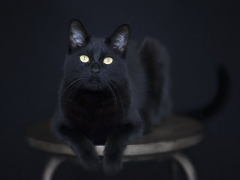

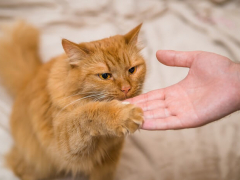
It’s fun to calculate the human equivalent age of your cat, but there must be something else that needs to be factored in. . . maybe whether or not kitty is neutered, gets regular veterinary care, flea treatments, and good quality food.
I’m getting some unbelievable results for my DSH kitty, a neighborhood stray who died in December at the age of either 19 or 20. Because he was already a habitual sprayer when he “adopted” me, he had to remain an outdoor-only cat until his kidney disease got really bad the last 6 months of his life. At that point I started bringing him inside just for meals, to be sure he got enough to eat. He did stay mostly inside the last month of his life, and finally had to be euthanized because of what appeared on an x-ray to be a fast growing tumor. The calculator says his human equivalent age would be something between 126 and 168!
he is name is CJ
he is so cute .I’ve never miss him ,cause we have limitation Iran .
I couldn’t keeping my cat in my flat and price of save cat its too expensive for me.
. Because of this I sold my cat I’m very sad and depressed. Now whenever see a cat needs help i help it with my heart.
I’m so sorry you had to sell your cat. That is heartbreaking, and I hope that someday you are able to adopt another cat and give it a home. Until then, keep helping with your heart. <3
hi – i’m hoping you can help — i am currently living alone with my 13yr old russian blue – chrissy, whom iu’ve had since she was about 1 yr old. she HATES being separated from me. if i’m home, she follows me around and the minute I sit, she is in my lap.
she has always slept either on me, or preferably, on my bed, between my arm and my side. i am having major surgery soon, where for 3 – 4 weeks i can have absolutely NO pressure on either my core body or both of my arms.
So. the best idea i’ve been able to come up with is to place her in her travel cage (which opens up to a large compartment) on the bed right next to me for those 3-4 weeks. she will NOT want to do this and will likely be very vocal about it for probably at least a week.
can you give me any suggestions as to how to make this as easy as possible for her? i’d really appreciate anything you can suggest – i’m really stressing over stressing her! thanks –
My Himalayan cat Gracie turns 21 in the spring , I’ve had her Brother and sister who are both gone , but Gracie is my joy she thinks she’s the boss and has been for lots of years now she thinks that I should be in bed with her she do a cat Scream like a Siamese cat .I’m the elderly housing complex where I live she’s a riot to the other ladies as she’s learned to say no somehow and you”ask her a question and it sounds like she says no ! I will tell her to go to bed and she”ll say No ! And in the last year when we go to bed she has to lay across my Chest till she thinks I’m asleep then she crawls into her bed next to me …..
That is a very impressive age Karen! What a lovely cat she sounds like, and such good company for you. Please say hello for us!
Great content!
I don’t understand “outdoor cats have rougher lives than indoor cats.” My indoor cats spend more time outside than they do inside. They love “roughing it.” The worse the weather the more they enjoy it. Indoor cats are deprived. They will spend their lives looking out a window if they cannot go out. The cats that spend time outside get more exercise than indoor cats that probably don’t get any. If you are referring to feral cats that don’t get the care and affection of house cats , that’s different. My feral cat, Marco, is 13 years old and going strong. Everything is relative. .
While I agree that outdoor cats have more stimulating lives, in general, studies show that on average, they do not live as long as indoor-only cats. This is because they encounter more risks, such as predators, cars and other accidents. Does that make more sense to you?
i agree
and my TJ is actually 24 years old a large maincoon breed of positive attitude cat
many pet owners have there’s put down at the age of 13 plus if there is a minor illness
we wouldn’t, to a human! it is all too commercial and money making, pet is not a toy!
TJ is well over 100 in human terms
COMPASSION TO ALL LIVING THINGS…LORD BUDDHA
Agreed! We need to consider THEIR quality of life and not just ours. It’s always a difficult conversation to have but I’ve learned that whether we’re talking about our cats or ourselves, there is a balance between quality and quantity of life – and the cost of prolonging it (quantity) is a very real factor. We should do what we can even if it’s expensive (part of the responsibility of having pet companions) but consider what’s best for them first and foremost. If they can have some procedure which gives a good prognosis and likelihood of good quality of life, that’s an easy decision. When it comes to less certain prognoses and quality of life, it’s much more “gray”.
When their time is finally up (very ill, unlikely to have good quality of life, suffering, etc.) then euthanasia is a wonderful, humane option. I actually wish it was available for humans too. In many ways I think we are more compassionate and humane to our animals / pets than to our own kin.